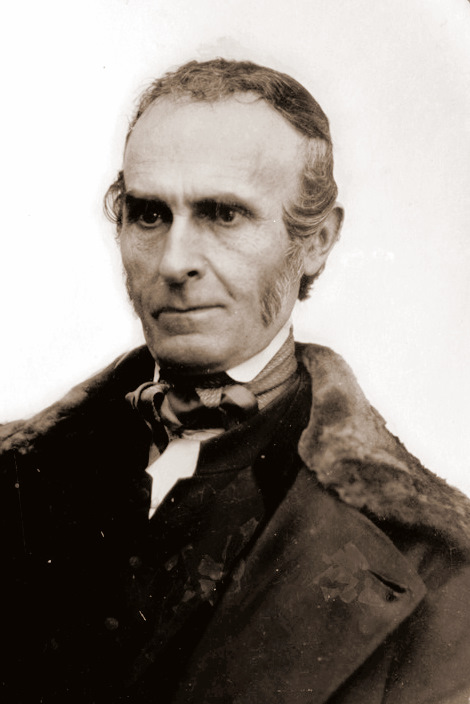John Greenleaf Whittier frasi celebri
“Anche la pace ha le sue vittorie, non meno importanti di quelle della guerra.”
citato in Call of Duty 3
John Greenleaf Whittier: Frasi in inglese
“The joy that you give to others
Is the joy that comes back to you.”
First published in The Educational Monthly of Canada, Volume 24 (1901), p. 29
Attributed
Contesto: Somehow not only for Christmas
But all the long year through,
The joy that you give to others
Is the joy that comes back to you.
And the more you spend in blessing
The poor and lonely and sad,
The more of your heart's possessing
Returns to make you glad.
My Triumph, reported in Bartlett's Familiar Quotations, 10th ed. (1919)
Contesto: Sweeter than any sung
My songs that found no tongue;
Nobler than any fact
My wish that failed of act.
Others shall sing the song,
Others shall right the wrong,—
Finish what I begin,
And all I fail of win.
“Sweeter than any sung
My songs that found no tongue”
My Triumph, reported in Bartlett's Familiar Quotations, 10th ed. (1919)
Contesto: Sweeter than any sung
My songs that found no tongue;
Nobler than any fact
My wish that failed of act.
Others shall sing the song,
Others shall right the wrong,—
Finish what I begin,
And all I fail of win.
“For of all sad words of tongue or pen,
The saddest are these: "It might have been!"”
Bret Harte wrote a famous parody of this famous poem, "Mrs. Judge Jenkins" in which the Judge marries Maud, and which he ends with the lines:
Maud soon thought the Judge a bore,
With all his learning and all his lore;
And the Judge would have bartered Maud's fair face
For more refinement and social grace.
If, of all words of tongue and pen,
The saddest are, "It might have been,"
More sad are these we daily see:
"It is, but hadn't ought to be".
Maud Muller (1856)
Contesto: Alas for maiden, alas for Judge,
For rich repiner and household drudge!
God pity them both! and pity us all,
Who vainly the dreams of youth recall;
For of all sad words of tongue or pen,
The saddest are these: "It might have been!"
The Worship of Nature, reported in Bartlett's Familiar Quotations, 10th ed. (1919)
“Falsehoods which we spurn to-day
Were the truths of long ago.”
Calef in Boston, reported in Bartlett's Familiar Quotations, 10th ed. (1919)
“Perish with him the folly that seeks through evil good.”
Brown of Ossawatomie, reported in Bartlett's Familiar Quotations, 10th ed. (1919)
The Chapel of the Hermits, reported in Bartlett's Familiar Quotations, 10th ed. (1919)
Snow Bound, reported in Bartlett's Familiar Quotations, 10th ed. (1919)
“Nature speaks in symbols and in signs.”
To Charles Sumner, reported in Bartlett's Familiar Quotations, 10th ed. (1919)
Rantoul, reported in Bartlett's Familiar Quotations, 10th ed. (1919)
Ichabod, reported in Bartlett's Familiar Quotations, 10th ed. (1919)
Sunset on the Bearcamp, reported in Bartlett's Familiar Quotations, 10th ed. (1919)
To the Reformers of England, reported in Bartlett's Familiar Quotations, 10th ed. (1919)
“Each crisis brings its word and deed.”
The lost Occasion, reported in Bartlett's Familiar Quotations, 10th ed. (1919)
The Chapel of the Hermits; comparable to Mrs. Browning, Aurora Leigh, Book vii
“Again the shadow moveth o'er
The dial-plate of time.”
The New Year, reported in Bartlett's Familiar Quotations, 10th ed. (1919)
“The Beauty which old Greece or Rome
Sung, painted, wrought, lies close at home.”
To ———, reported in Bartlett's Familiar Quotations, 10th ed. (1919)
A Dream of Summer, reported in Bartlett's Familiar Quotations, 10th ed. (1919)
“For they the mind of Christ discern
Who lean, like John, upon His breast.”
Origine: Dictionary of Burning Words of Brilliant Writers (1895), P. 399
“Life is ever lord of Death
And Love can never lose its own.”
Snow Bound, reported in Bartlett's Familiar Quotations, 10th ed. (1919)
The Beautiful, reported in Bartlett's Familiar Quotations, 10th ed. (1919)
Line on Burns, reported in Bartlett's Familiar Quotations, 10th ed. (1919)
“Making their lives a prayer.”
To A. K. On receiving a Basket of Sea-Mosses, reported in Bartlett's Familiar Quotations, 10th ed. (1919)
“The windows of my soul I throw
Wide open to the sun.”
My Psalm, reported in Bartlett's Familiar Quotations, 10th ed. (1919)
